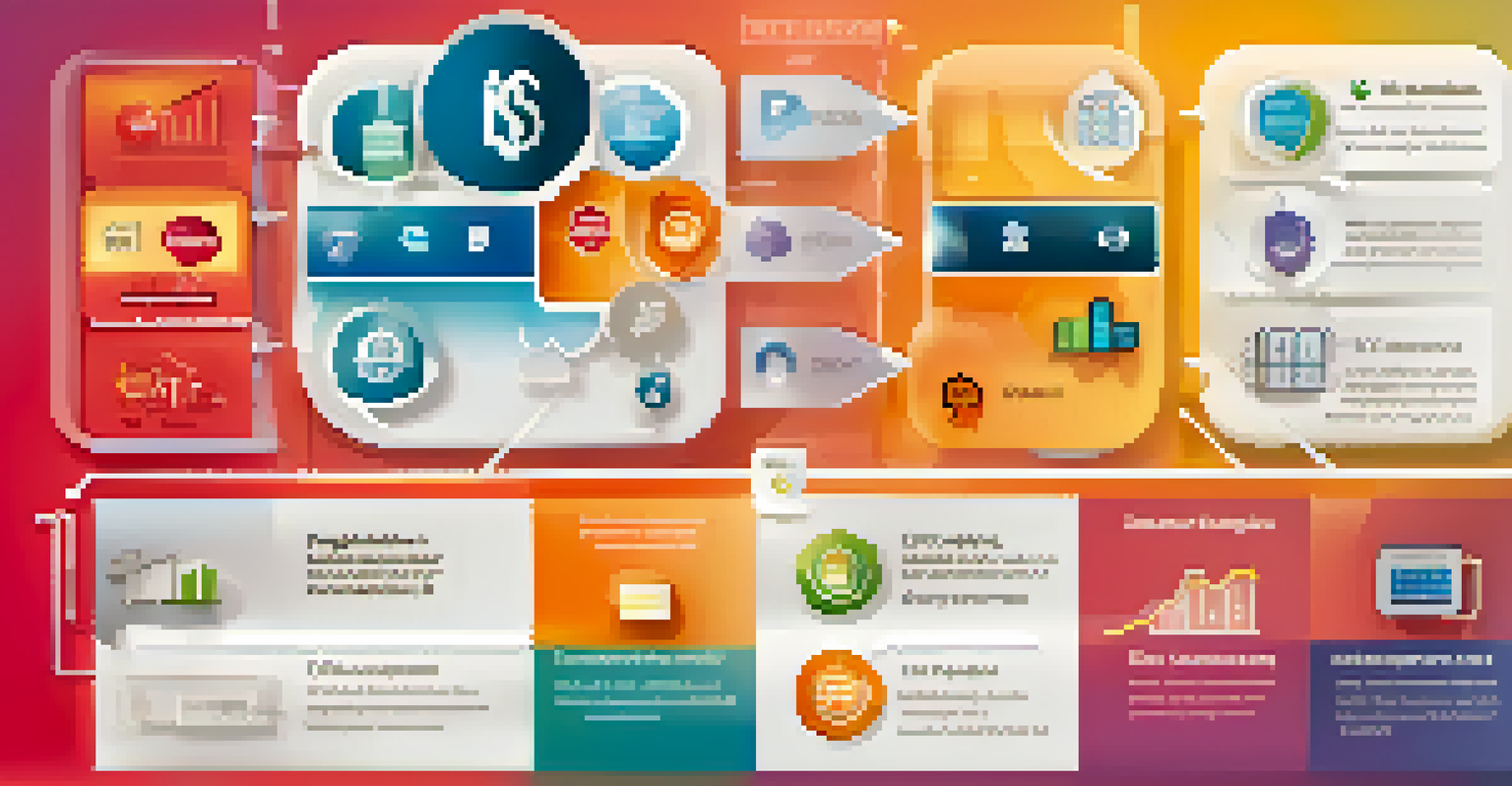The Benefits of Integrated Payment Solutions for Businesses

Streamlined Transactions for Enhanced Efficiency
Integrated payment solutions streamline the entire transaction process, allowing businesses to handle multiple payment methods seamlessly. By consolidating various payment systems into one cohesive platform, companies can reduce the time spent on processing transactions. This efficiency not only saves time but also minimizes the chances of errors, leading to smoother operations overall.
In today's digital world, security is more crucial than ever.
For example, consider a retail store that accepts credit cards, mobile payments, and gift cards. With an integrated solution, all these payments can be processed in one system, eliminating the need for multiple terminals or software. This not only simplifies the checkout experience for customers but also significantly reduces the workload for staff.
Moreover, faster transactions enhance customer satisfaction, as shoppers appreciate quick and hassle-free payment experiences. When customers leave happy, they’re more likely to return, ultimately benefiting the business in the long run.
Improved Data Management and Reporting
One of the standout benefits of integrated payment solutions is the enhanced data management capabilities they provide. Businesses can gather and analyze transaction data more effectively, leading to better insights into customer behavior and purchasing patterns. This data can be valuable for making informed business decisions and tailoring marketing strategies.

For instance, if a business notices a spike in mobile payments during a specific season, they can adjust their marketing efforts to promote mobile-friendly options. Integrated systems often come with advanced reporting tools that allow businesses to track sales trends, helping them stay ahead of the curve.
Streamlined Payment Processes
Integrated payment solutions simplify transactions by consolidating multiple payment methods into one platform, enhancing efficiency.
Additionally, having all payment data in one place streamlines accounting processes. Businesses can reconcile transactions more easily and maintain accurate financial records, which is essential for tax purposes and overall financial health.
Enhanced Security Features for Peace of Mind
In today’s digital world, security is more crucial than ever, and integrated payment solutions often come with advanced security features. These systems are designed to protect sensitive customer information from fraud and cyber threats, which is a growing concern for many businesses. With robust encryption and compliance with industry standards, businesses can feel confident in their payment processes.
The customer is always right, but they also expect convenience.
For example, integrated solutions often include tokenization, a method that replaces sensitive card information with a unique identifier, or token, making it nearly impossible for hackers to access actual card details. This added layer of security can significantly reduce the risk of data breaches, which can have devastating financial and reputational consequences.
Moreover, providing a secure payment experience builds trust with customers. When shoppers know their information is safe, they are more likely to engage with a brand and make repeat purchases, fostering long-term loyalty.
Cost Savings Through Consolidation
Integrating payment solutions can lead to significant cost savings for businesses. By combining multiple payment services into one platform, companies can often reduce their overall transaction fees and operational costs. This consolidation eliminates the need for multiple vendor contracts, which can be both time-consuming and expensive.
For instance, a business that previously managed separate contracts for credit card processing, mobile payments, and e-commerce transactions may find that an integrated solution offers better rates. Additionally, businesses can save on hardware costs by using a single device for all payment types, further enhancing their bottom line.
Enhanced Data Insights
These solutions provide valuable data management capabilities, allowing businesses to analyze customer behavior and tailor marketing strategies effectively.
Ultimately, the cost savings achieved through an integrated payment solution can be reinvested into other areas of the business, such as marketing or product development, driving growth and innovation.
Flexible Payment Options to Meet Customer Needs
In an era where consumers expect convenience, offering flexible payment options is essential for businesses. Integrated payment solutions allow companies to accept various payment methods, including credit cards, e-wallets, and cryptocurrencies. This adaptability ensures that customers can choose their preferred payment method, enhancing their shopping experience.
For example, a customer shopping online may prefer to use a digital wallet for quicker checkouts, while someone at a brick-and-mortar store might choose to pay with a contactless card. By accommodating different preferences, businesses can cater to a wider audience and increase conversion rates.
Additionally, flexible payment options can help reduce cart abandonment rates in e-commerce. When customers feel they have choices, they are more likely to complete their purchase, leading to higher sales and revenue.
Increased Customer Insights for Targeted Marketing
Integrated payment solutions provide businesses with valuable customer insights that can be leveraged for targeted marketing campaigns. By analyzing transaction data, businesses can identify trends and preferences, allowing them to tailor their offerings to meet customer demands. This data-driven approach can significantly enhance marketing effectiveness.
For instance, if a retailer notices that a particular demographic frequently purchases a specific product, they can develop targeted promotions aimed at that group. This not only increases the chances of successful conversions but also fosters a sense of connection between the brand and its customers.
Flexible Payment Options
Offering a variety of payment methods caters to customer preferences, improving the shopping experience and reducing cart abandonment.
Moreover, understanding customer behavior helps businesses create personalized experiences, such as loyalty programs or special discounts. When customers feel valued, they are more likely to engage with the brand and become loyal advocates.
Scalability to Support Business Growth
As businesses grow, their payment processing needs evolve, making scalability a critical factor. Integrated payment solutions are designed to easily adapt to changing business requirements, whether that means adding new payment methods or expanding to new markets. This flexibility ensures that businesses can scale without facing significant operational hurdles.
For example, a small boutique may start with only in-store sales, but as they grow, they might want to launch an online store. An integrated payment solution allows them to seamlessly add e-commerce capabilities without overhauling their entire system. This scalability is vital for businesses aiming to expand and thrive in a competitive landscape.

Moreover, the ability to scale helps businesses stay agile. When new opportunities arise, having a flexible payment solution in place allows companies to seize them quickly, leading to faster growth and increased market presence.